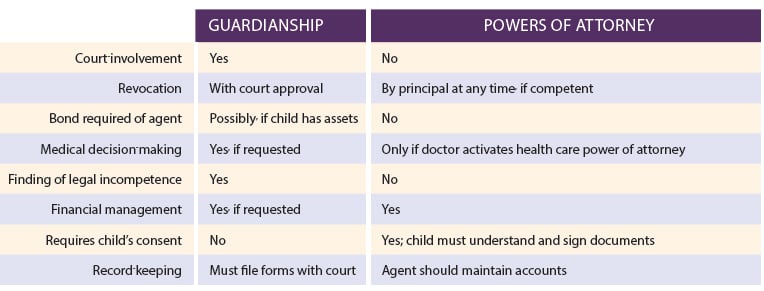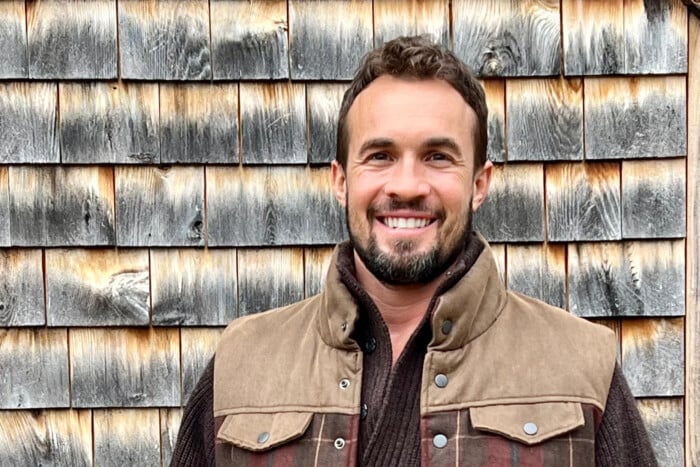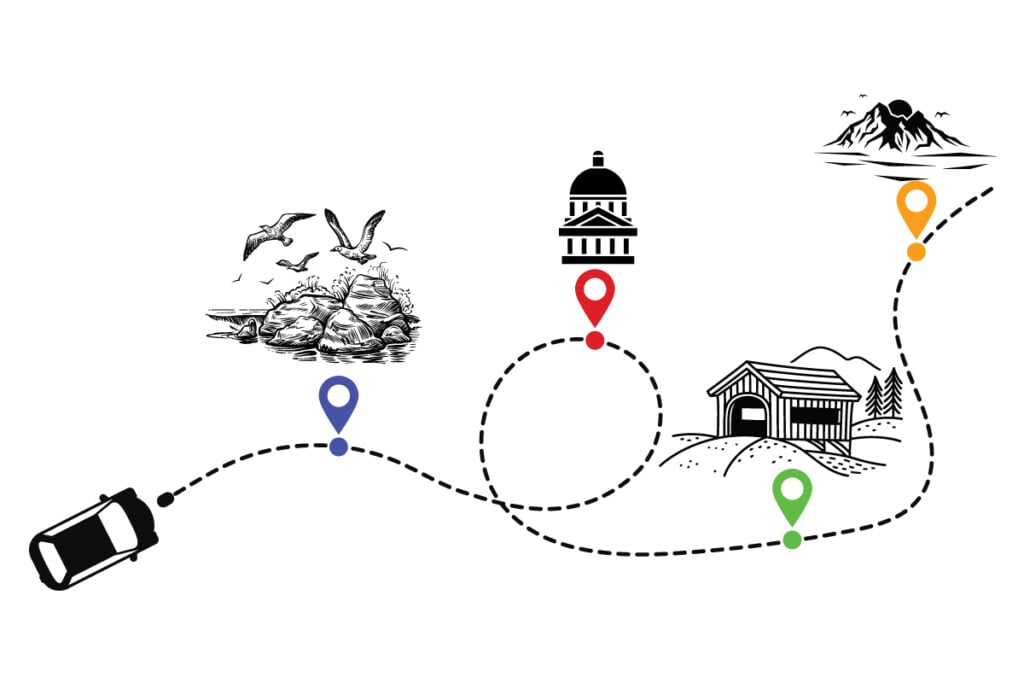Does my child have autism?
What parents need to know about getting a diagnosis and finding support
Stephanie Morin was in disbelief when her twin sons received autism diagnoses, one at 17 months and the other at 26 months.
When the boys’ pediatrician suggested that she get her sons evaluated by a developmental pediatrician, Morin balked. After all, Morin was a practicing Board Certified Behavior Analyst (BCBA), an expert certified in applied behavior analysis who typically works with children on the autism spectrum.
She had worked previously for a psychiatric hospital’s developmental disabilities unit, where she was first exposed to groups of children and adults diagnosed with autism. It was in this job that Morin changed her educational path from special education to applied behavior analysis, a scientific approach to understanding different behaviors and helping people improve their social and communication skills, as well as adaptive learning skills related to fine motor dexterity.
Looking back, she recalls that some of the early signs were there. When family members walked into the room, her boys didn’t seem to notice. They weren’t hitting typical language milestones, either.
“As an autism expert working in the field… I didn’t notice that my own kids had autism. When the pediatrician told me, I was in such shock and denial that I was completely immobilized,” said Morin, who is a clinical outreach director for The Birchtree Center in Newington, an organization that provides applied behavior analysis (ABA) services both on-site and in school for children with autism.
“The doctor had a frank conversation with me and told me not doing anything is not going to make anything better. At work, I see a lot of that. Sometimes I feel that I should share my story, because I want people to know what I experienced. Looking at my boys now, people are shocked to learn that both boys have autism.”
Her twins are now four years old and thriving thanks to a combination of in-school support and ABA services they receive after their preschool day ends.
“Both of them are now talking up a storm; it’s unbelievable,” she said.
But before parents can address any developmental delays in their children and get early intervention support services or in-school support, they first must get the right diagnosis, Morin said.
Getting a diagnosis
One in 59 children has been identified with autism spectrum disorder (ASD), according to current estimates from the Centers for Disease Control’s Autism and Developmental Disabilities Monitoring Network. (This number is up from 20 years ago, when the number was about 1 in 150 children, according to the CDC.) ASD is about four times more common in boys than girls.
Getting an autism diagnosis is not as simple as getting a blood test. To make an accurate diagnosis, doctors must look at a child’s behavior and development, according to the CDC. Although it can be detected as early as 18 months, many children do not receive a final diagnosis until they are much older.
Nina Sand-Loud, assistant professor of psychiatry at the Geisel school of Medicine at Dartmouth Medical School and a developmental pediatrician at Dartmouth-Hitchcock Medical Center, said that most parents complete a developmental screening test at their pediatrician’s office during annual well child visits.
General developmental screenings (like the Ages and Stages Questionnaire) typically take place at 9, 18, and 30 months; specific autism screenings take place at 18 and 24 months. It’s important to note that these screenings only show that a child is having problems reaching developmental milestones; they do not in themselves make a diagnosis, Sand-Loud said.
One of the most common autism spectrum screeners, the Modified Checklist for Autism in Toddlers, or MCHAT, asks parents to assess whether their children do things like point at objects, play pretend games, show interest in other children or move their fingers near their eyes, to name a few. If children score in an “at-risk” range, a pediatrician will ask supplementary questions to try to pull out more information, Sand-Loud said.
“If the child shows that he or she is at risk … we typically do refer them to someone else for further evaluation. It’s very rare for a pediatrician to make a diagnosis based on a screening instrument alone,” she said.
At the same time, Sand-Loud urges parents to advocate for themselves if they think the screening tools aren’t addressing the behaviors they are concerned about.
“(At the doctor’s office) some kids are chatty and comfortable, and some hide under the chair. We have to use the glimpse of them we see in the office as a full picture — but mostly, parents know best. Their teachers also know them well because they teach in classrooms of children who are the same age and they might be able to help address potential concerns, too,” she said.
What do I do now?
If a child is younger than age 3, their parents would typically contact New Hampshire’s early intervention program, Family-Centered Early Supports and Services.
Each region of New Hampshire has its own location where children can be assessed by specialists who can screen and support toddlers with developmental delays, including autism. In an early intervention screening, occupational therapists, speech therapists, and/or early childhood educators might take part in the screening.
At this age, children often receive services at home. In other cases, therapists may visit the child’s child care center. In all cases, services are free-of-charge to the parent.
Even if you don’t have an autism diagnosis, it’s still important to follow through with any support services at the same time you are seeking an official diagnosis from a developmental pediatrician, Sand-Loud said.
“It can be a long wait before you are able to see a developmental pediatrician. In my practice, we triage cases. We look at whether their age, specific concerns, and the early supports they are already receiving, and decide how quickly they need to be seen,” she said.
Currently, children under age 3 diagnosed with autism can usually be seen within two months; whereas older children might receive an assessment and wait six to eight months before visiting a developmental pediatrician, Sand-Loud said.
Whether a child is ultimately diagnosed with autism, it’s important for them to start working on areas that are challenging for them while they wait for a diagnosis.
It’s important for parents to understand that they shouldn’t wait to address the concern,” she said.
Once a child reaches age 3, they age out of early intervention and become eligible to receive services through the local school district, because of the Individuals with Disabilities Act (IDEA). However, many of the state’s public preschool programs only run part-time for a few days a week.
To bridge the gap, children can supplement their support through centers like The Birchtree Center, Morin said. Families who have children with an autism diagnosis can get private services reimbursed through their insurance companies or Medicaid. And while it seems like kids might need some “downtime” from school, for children with autism, the opposite can be true.
“For really young kids, 40 hours a week of ABA therapy is the gold standard,” she said.
“A lot of the kids I work with don’t know how to fill their down-time appropriately. They need someone facilitating, guiding and structuring things for them. Otherwise, some of those inappropriate behaviors can come into play and they become harder to break.”
Most states have laws that require insurance coverage of autism services, including New Hampshire, although coverage for ABA services can be capped at a certain amount. In New Hampshire, coverage is limited to $36,000 per year for children up to 12 years and $27,000 for children ages 13-21, according to House Bill 569, passed in 2010.
The Birchtree Center staff work closely with a student’s school team to determine what support kids need. Together, they create an environment for a child in the least restrictive learning setting.
“I am a firm believer that anything can happen in a public school if you are pulling in the right resources. I’ve seen kids in public schools where the school said that they were so disruptive and dangerous that they couldn’t continue at that level of support. I’ve said to them, ‘give me a month and I can turn it around,’” Morin said. “In this case, the child has had zero instances of interfering behavior with the right supports in place.”
Crotched Mountain’s Ready Set Connect autism centers also provide ABA therapy to children in New Hampshire. Located in Manchester, Concord, and Tilton, the centers blend individualized teaching with group learning.
BCBAs and ABA therapists measure skills and track data while children participate in group activities and build skills to better navigate relationships with their peers. Ready Set Connect also offers topic-based parent trainings and consultations.
The organization started as a small center in Concord 11 years ago and has expanded as the need for services has spiked, said David Johnson, vice president of marketing and communications for Crotched Mountain.
Once parents have a comprehensive diagnostic evaluation that confirms the diagnosis of autism from a psychiatrist, licensed professional psychologist, pediatric neurologist, or developmental pediatrician, their child can begin to access services.
Like The Birchtree Center, Ready Set Connect’s case workers, BCBAs, and ABA therapists work closely with a child’s family and school team to make adjustments in his or her treatment plan as behaviors change or improve.
“The sooner the child gets services, the better. If a pediatrician says it’s worth looking at, get your child tested. It’s tough to get to that point and acknowledge that, but the research is rock solid, and we can serve kids at younger and younger ages,” Johnson said.
Extra support for families
Families whose children receive an autism diagnosis, or any other medical diagnosis that requires additional support, often feel alone and unsure of where to turn.
Terry Ohlson-Martin, who founded New Hampshire Family Voices in 1994 with Martha Jean Madison, encourages parents to remember that their child is the same person he or she was before they received an official diagnosis.
Ohlson-Martin, whose son, Kenny, 40, has cerebral palsy and is nonverbal, said that while there was a good public education system in place for her son when he was younger, there was no direct system to help her navigate the health care side for him.
New Hampshire signed on as one of the first Family Voices National organizations in the nation and began as a grassroots network of families of children and youth with special health care needs for the purpose of sharing information, resources, health programs and policies.
Today, New Hampshire Family Voices participates in program development, implementation and evaluation, and sharing families’ expertise in the formation of policies affecting their children. In addition, the nonprofit organization connects families with one another and provides families and professionals with information to connect children to services.
Parents concerned about following the right protocol to get their kids the right treatment at the right time turn to New Hampshire Family Voices for help navigating the ABCs of autism.
“The first thing you have to do after you get a diagnosis is reframe your thinking. There is not just one road you should go down. Families often ask, ‘what do I do next?’ I tell them to tell me about their child, not the diagnosis and how it presents,” she said.
Each family’s capacity and stamina for pursuing support is different, she said. Depending on the child’s diagnosis and the severity of his or her behavior, families might take a different approach when it comes to next steps.
“I ask them, ‘what do you want to change? What is getting in the way and what is the barrier your child needs to get over?’” Ohlson-Martin said.
New Hampshire Family Voices can talk parents through their concerns, let them know where to call, what to ask when they do call, and what they might want to think about, she said, adding that because each state offers services a little differently, it can be especially difficult for people who’ve recently moved to New Hampshire to navigate the system. An emerging group seeking assistance, grandparents often find themselves overwhelmed after they receive custody of a grandchild with an autism diagnosis.
“We can walk them through it. Sometimes we are the calming factor in the system,” she said.
The organization also hosts a private Facebook group of more than 1,000 members, holds training for families on topics such as health care financing, best practices and family/professional partnerships; supports a lending library and offers parent-to-parent support for families who just need to talk to someone.
Morin agrees that finding the right people to talk to can help make receiving an autism diagnosis a lot less overwhelming.
“I felt so alone that I didn’t even share it with colleagues at first. It was about finding people to open up to and talk to,” she said. “Now I have a great group of friends.”
Krysten Godfrey Maddocks is a former journalist and marketing director who now regularly writes for higher education and technology organizations in New Hampshire and Massachusetts. Krysten won three awards — gold, silver and bronze — from the Parenting Media Association in 2020.












